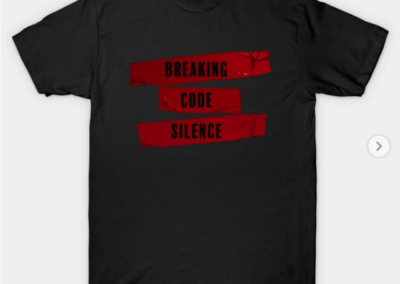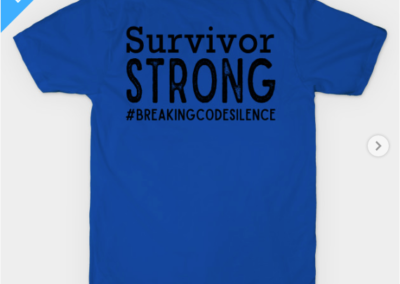The prosecutor closing argument is pretty long so we’ll post some highlights here. Be warned: There are some very explicit details about the sexual abuse. The only thing that WWASP Survivors did not post is the victim’s testimony to protect the victim but there are some details from that testimony revealed in closing arguments.
The prosecutor described what the legal definition of reasonable doubt is to the jury.
The first one that is the most important in any criminal case is proof beyond a reasonable doubt. Proof beyond a reasonable doubt is the State’s burden. We gladly take it on in every criminal case that we do. This is the definition: “If, after a full and fair consideration of all the evidence, you are firmly convinced of the defendant’s guilt, then you have no reasonable doubt and you should find the defendant guilty.” Okay. That’s the standard, firmly convinced. What it doesn’t mean is beyond all doubt, beyond any doubt, beyond a shadow of a doubt. It’s called reasonable doubt for a reason. Firmly convinced. What it also doesn’t mean is that if something’s possible then that means there’s reasonable doubt. Anything is possible. It’s possible you’re going to walk out of the courthouse and get hit by a car. Is that reasonable? It’s possible that we all might not wake up tomorrow morning because the earth explodes. Is that reasonable? So just because an alternative theory is given, just because someone says, I didn’t do it and another says I did, that doesn’t mean there’s reasonable doubt. Reasonable doubt is based on your common sense. It’s based on the kind of doubt that would make a reasonable person hesitate to act.
A reasonable doubt is one also that naturally and fairly arises from the evidence or lack of evidence. It’s based on reason and common sense, not on the mere possibility of innocence. That naturally and fairly arises, what it means is you don’t go looking for it.
The prosecutor went into deciding credibility and conflicts between the two parties stories.
If you can’t reconcile the conflict–because in this case you can ’t reconcile the conflict. [Sexual abuse victim] said it happened. He said it didn’t. So if you can’t reconcile that conflict, accept the evidence you find more believable. What do you find more believable? Who do you find more believable? What do you find more credible? Who do you find more credible? Don’t throw up your hands. Make a decision.
The prosecutor discussed the imbalance of power between the students and Ben. She also went into how the staff were dependent on him as well.
It is extremely important in this case that you consider what the power imbalance is between the Defendant and [sexual abuse victim]. You cannot ignore that. And all of those rules, all of the structure, all of that goes towards what position [sexual abuse victim] was in when she came to that school. What the position all of the students were in when they were at that school. What the position the staff was in. You know, you heard testimony about the fact that staff lived in the condominiums. The staff had cars. The staff was very dependent on him as well, okay? And that’s the environment of that place. Those children had absolutely no control over anything that they did. And that’s where all of this starts.
The sexual abuse victim moved up in statuses quickly and was doing well in the school when Ben Trane started paying more attention to her. Her peers took notice.
So [Sexual abuse victim] has been there for a while. [Sexual abuse victim] adjusts pretty well. She comes into the school. She can handle the rules. She’s one of those people that can sit back and think about her actions, and she does fairly well. She moves up fairly quickly. She gets to go on services projects. All of those things are occurring. You heard testimony that the Defendant has started to pay some more attention to her; that some of the girls were getting jealous of that; that she was getting treated like a princess.
Ben was treated like god at Midwest Academy.
How many times did you hear that in this case? The Defendant was like God there. He was worshiped there. He had all the power. He could do whatever he wanted. Him doing that in that room full of girls just set the stage for everything else to happen.
Originally Ben had told the agents that he couldn’t remember if the sexual abuse victim had been to his house. His story changed at trial where he said he remembered and Layani was there. Layani also testified that she remembered this day out of the blue as well. The prosecutor called out that the jury really needed to take account the credibility of who was testifying.
Now, here’s where you get the big diversion; right? So the Defendant says he has a really foggy memory of this, not for sure. But he does remember cinnamon rolls. He does remember Layani being there. And, you know, he told agents he could not remember if [sexual abuse victim] was in the house. But now he’s saying he has a foggy memory that that happened. Layani testified that she remembers the day out of all those days of being at the academy and with all the kids there, she remembers that particular day that Mxxxx and [sexual abuse victim] came over for cinnamon
rolls. This is where you have to start deciding credibility, not just of the Defendant but other people who are
testifying for him.
The prosecutor reminded the jury that multiple witnesses stated that you couldn’t say no to Ben at Midwest Academy.
This was when –and I know you all remember this –this is when [sexual abuse victim] was on the stand, and I asked her, why didn’t you say no? That’s when she got so quiet, and she looked down, and she said, I don’t know why. And I asked her, did you think you could say no to Mr. Ben? No. She is not the only per son you heard in this case that would say that. Rxxxxx testified, you didn’t say no there. When she was being asked about whether or not the –going to do the mirror class, well, that was voluntary, wasn’t it? Well, he said it was, but you don’t say no there. Okay? Nothing is voluntary there. And she didn’t think she could say no to Mr. Ben. And Mr. Ben knew that she wouldn’t say no to him. She didn’t tell. Life went on like nothing happened.
After the initial grooming and sex acts, the later sex acts happened in the seminar building – which happened to be the most remote building in the campus.
We’re in the fall now, and this is when things increased. And again, go back to Dr. Salter’s testimony where she talked about how that’s common in these types of situations with offenders; that they start out with the small touch, and then it keeps moving up until you’re into the full-blown sex. The rest of the sexual acts from here on out happened in the seminar building. It happened in the building that is the farthest away from anywhere else in that campus. It is a long walk back to the seminar building. You have to go through a lot of doors to get into the seminar building. The seminar building has no cameras.
The prosecutor pointed out that Ben had 2 months to get rid of any evidence which is why they couldn’t find the footage of the sex act or any DNA where the sex act occurred but they did find the camera that the victim described him using.
Do you remember the camera that he used? They found it. So there was a camera. But it h as a little SD card, so there’s no footage. They took the SD cards that were sitting around. It’s not there. But keep in mind, too, when did
[sexual abuse victim] report? December 1st is when it all came out. The Defendant knew it. In fact, he knew it was coming the week before that because little stuff started to come out. When did they go in to do a search? January 28th. He had two months to take care of what he needed to. So they found the camera, but they didn’t find any footage. That doesn’t mean it didn’t happen.
We don’t have that third party witness. We don’t have that video footage. We don’t have DNA. We normally don’t in sex abuse cases like this. But what you do have is the eyewitness to the crime. Don’t hold her to a different standard than you would hold somebody who had their purse stolen. She gave you the details of that as good as she could, as well as she could, sitting up in a room full of strangers in front of the Defendant, in front of people that she knew in the back, and having to tell that.
Her testimony is believable, and it is proof beyond a reasonable doubt. Her testimony alone, if you believe it and you find it to be consistent with what else you know, her testimony alone is beyond a reasonable doubt. Because you do have to decide who to believe
The prosecutor pointed out that the victim didn’t change her story and it was always consistent. We know from the testimony and the statements Ben Trane made to agents that his did not remain the same.
She was on the stand a long time. Did you find anything inconsistent when she was up there? Did you find that she suddenly changed her story from here to there? Joe Lestina testified that her story had always been consistent with him; that she gave a description of the Defendant’s house and his basement, and it was completely consistent with what he saw when he did the search there.
The prosecutor went over how the victim disclosed and how that made her much more credible. The Trane supports have been posting on the internet about how she just said this to get out of Midwest Academy but the way she disclosed was not consistent with someone trying to get the school shut down or trying to leave the school. She was an upper level at the time she was placed on suicide watch. In fact, the victim begged Cheyenne not to tell anyone.
The circumstances of her disclosure alone are credible. They want you to believe that she was mad; that she made all of this up because she didn’t get to go home to see her sister –or she didn’t get to go off campus to see her sister . That’s what they want you to believe; that’s their motive for [sexual abuse victim] not being honest. Does that fit with what you know in this case? Because what you know is her disclosure was not so much her doing it.
All right. We know that last sex act happened mid-November, and it was shortly after that, after this had been going on for months, after you heard from some of the girls that they saw a change in [sexual abuse victim]’s behavior; that she didn’t want to be around the Defendant anymore; that it wasn’t cool to have him as a family rep; that she wasn’t happy when he came in the room.
And what you also know is that [sexual abuse victim] started having some suicidal expressions. And with that she had made the comment to a girl, a couple of girls, I’m not comfortable, I’m uncomfortable around Mr. Ben. That’s all that was said.
The girls tell. They did what they’re supposed to. They went and told what was going on; that Kxxxxxx was saying
suicidal things; that [sexual abuse victim] said Mr. Ben makes her uncomfortable.
And what happens to [sexual abuse victim]? She is written up. She is given a life buddy. She’s put out in the hallway and she’s lost her level. So [sexual abuse victim] found out really quick what happens when you tell. You know, she tested the waters and she got probably what she expected from it, punishment.
What’s important about this, too, is that it’s at this point that the Defendant knows this has been said. Now, he told you he’s busy with Thanksgiving and, you know, he knew about it at some point. He admitted he knew about it before December 1st. So he knows at this point.
Miss Cindy, Miss Jane, on the 24th, Miss Jane talks to her. [sexual abuse victim] doesn’t tell. She doesn’t say anything. Nothing at all. She takes her consequence and goes back to having her life buddy and sitting out in the hallway. Is that what someone does who is making this up, who’s trying to hurt somebody, who’s trying to get back at somebody? Not at all.
But at some point it starts rolling out. At some point it’s too much. Like Dr. Salter said, that pressure cooker in these kids that don’t tell, and then they have all these outside influences of everybody acting like it’s normal and nobody knowing what’s going on, and all of this builds up, and a lot of times it comes out when there’s anger or suicidal thoughts.
She finally tells. She tells Cheyenne, just a little. So again, if she’s trying to get to the Defendant, if she’s trying to hurt him, trying to get him in trouble, is this how she would tell? No. She tells just a little. Again, testing the waters.
They talk over a few nights. She tells Cheyenne about the birthmarks, that that part happened. And Cheyenne asked if he did anything else. And [sexual abuse victim] confirms it, that there’s more but she won’t say what. Cheyenne, the first time that’s brought up to her, do you remember that testimony from Cheyenne? The first time that’s brought up to her, she tells Cindy Crew. So they knew about it.
Cheyenne said that [sexual abuse victim] begged her not to say anything. Cheyenne said that [sexual abuse victim] didn’t want to leave; that when she was talking about this she was shaking, she was crying. But Cheyenne did do the right thing, despite what the Defendant wants you to believe. She did the right thing and she went and she told. She told Cindy Crew that night.
And then after a couple of days when she figures out nothing is going to happen, nobody is doing anything, and now I’m getting called into the office, into management? And she calls DHS. Cheyenne is one of few adults at that place that did the right thing, and she called DHS.
But we still see with this disclosure, why this disclosure makes her testimony credible , is because she still doesn’t want to tell. So Davis and Riter talk to [sexual abuse victim]. She doesn’t say anything. She doesn’t want to leave. She told you that.
And maybe that surprised you a little bit when you heard that. Because I know when I heard that, I’m like, man, I would be running out of that place as fast as I could. But she didn’t want to leave. She had friends there. It was a home. Regardless of the type of home it was, it was one that she had because she didn’t have one to go to.
She refuses to say anything. Cheyenne is called for the meeting. She called DHS. She tells them at the meeting, I’ve called DHS. Cheyenne is fired two days later. And I hope you do not buy that testimony that it wasn’t the Defendant’s decision or that he wouldn’t have been part of that decision that Cheyenne was fired.
[sexual abuse victim] is removed from the facility. It took some time but she finally told. She disclosed. It came out. It took a few days, but she got it out.
The prosecutor pointed out that Ben was so quick to take credit for anything good but distance himself from anything bad in that facility. He wanted everyone else to take accountability except him.
Isn’t it interesting that he had no problem taking credit for every good thing that happened at that school, but everything that wasn’t, that was somebody else fault, somebody else’s responsibility.
The prosecutor pointed out that they weren’t going only based on what the victim said. Other people noticed Ben’s behavior towards her. Ben picked her because she was vulnerable and the easiest to accuse of being a liar later. She also commented on Cheyenne’s testimony and how she didn’t appear to indulge or exaggerate to hurt Ben even though she could have.
You also have to consider the Defendant’s actions with [sexual abuse victim]. It’s not just [sexual abuse victim] saying that he paid more attention to her, all right? You also know that he knows that she’s vulnerable. She’s there for a reason. Kids like [sexual abuse victim] are the perfect kids to pick for this kind of stuff. Unfortunately, they get picked a lot for this kind of stuff. Why? Because they’re the easiest ones to later on say, they’re liars; they steal; they’re runaways; they do bad things; you can’t believe these kids. And the kids know it. They know who they are and where they come from, and you know what their self-esteem is, and you know what the issues are. They don’t think anyone is going to believe them either, so they don’t tell. He knew her vulnerabilities.
He starts paying more attention to her, taking her on the service projects, choosing her for a second. You heard that from multiple students at the academy. It wasn’t just [sexual abuse victim] saying that.
And everyone wanted to be around Mr. Ben, right? So to the outside world, she’s so lucky. She gets treated like a princess. But what did [sexual abuse victim] say to Mxxxxxx? They wouldn’t want him for a rep if they knew
So others noticed. Lxxxxx, go back to her testimony. It’s been a while back as well. He gave her more attention than the other students. He picked her more often for trips and for seconds. There was time when Lxxxxx was with them, and he let Lxxxxx go to the bathroom while he stayed alone with [sexual abuse victim]. Now, to all of us that may seem like, what’s the big deal? But you know in that school that was a huge deal for the Defendant to say, yeah, I’m fine sitting here by myself for her to go to the bathroom. That didn’t happen.
He gave [sexual abuse victim] extra points. Lxxxxx saw him pull her out class a lot. Other girls were jealous. All the other girls there were jealous. It didn’t help [sexual abuse victim] when he was giving her this attention, because they were getting mad about it and jealous.
And what did Lxxxxx say? He was the owner. He could do whatever he wanted. Everybody at the school knew Mr. Ben could do whatever he wanted.
Fxxxxxxx. She saw the Defendant pull [sexual abuse victim] out of gym class. She saw her pull her out of class multiple times. He’d always be talking to [sexual abuse victim] away from the other kids. Now, she didn’t say, you know, I saw him in the hallway alone walking up to the stairs or whatever, but she said it was normal in gym class or whatever class to have the Defendant pulling her aside in the same room and just talking to [sexual abuse victim].
He’d buy the brand products for [sexual abuse victim], not the cheap stuff. And again, to us, well, maybe not such a big deal, but to those kids, huge. They were getting the Dollar General shampoo and [sexual abuse victim] the brand name. Big deal. Staff rules of being alone did not apply to Mr. Ben. That’s what Fxxxxxxx told you.
Cheyenne Jerred. Cheyenne was –I put that down wrong. She was not her family rep. Cheyenne was the night staff. Cheyenne would see the Defendant come in and talk to the girls at night. Now, Cheyenne–they’re going to say Cheyenne is a disgruntled employee. Did Cheyenne seem like she was trying to add things to the story, to make things up? Because if she wanted to tell a really good story, if she really wanted to stick it to the Defendant, wouldn’t she have come in and said, yeah, I saw him come in one time and I saw him walk down the hall with [sexual abuse victim], and they didn’t come back for, like, fifteen minutes? But Cheyenne didn’t do that, which is what makes her credible.
She said, I can’t say that I saw him with [sexual abuse victim], but he did come on the floor. So you know that happens. It was usually between 9:00 and 11:00 at night, and that they didn’t –the staff didn’t keep track of st aff who came on the floor. And Cheyenne also knows Mr. Ben could go wherever he wanted.
Mxxxxxx. The only staff you could hug was Mr. Ben. So again, it’s that kind of all -powerful position that he had. All the kids wanted to be with him. He was the only staff that you could hug. He had all these special things that he would do for everyone. Mxxxxxx said it was usually [sexual abuse victim] that he would take on errands. It was usually [sexual abuse victim] that he would take as a second.
Mxxxxxx said [sexual abuse victim] at first was excited to see Mr. Ben. She thought –I mean, everybody thought it was cool that Mr. Ben was the family rep. Over time, she didn’t want to go with him. She made excuses why she wouldn’t or couldn’t go with Mr. Ben.
And one time Mxxxxxx and [sexual abuse victim] were talking about the other girls’ jealousy, and Mxxxxxx was bringing up what some of the other girls were saying and how they were so jealous. And [sexual abuse victim] says, yeah, well, they don’t even want Mr. Ben as a rep if they knew
The prosecutor pointed out that Ben Trane made the decision to be the victim’s family rep and states that both Layani and Ben lied about it in their testimony. It was not decided by a committee. Mike Davis even testified that he would not have wanted her with male family rep and Jane Riter said she was not involved in the decision but Layani and Ben both testified that some committee decided it and he just unwittingly went along with it. She also pointed out that the victim was moving up in levels and doing great – so why would no one want to be her family rep?
He chose to be [sexual abuse victim]’s family representative. This choice was not made by some committee. This choice was made by him. Mike Davis testified that he told the Defendant that he shouldn’t be [sexual abuse victim]’s family rep. He told him that [sexual abuse victim] was better suited with a female family rep, as was Mxxxx. And those are the two people the Defendant chose to have on his caseload.
Jane Riter says she was not involved in that decision. Now, Ben and his wife Layani, it was a whole big group committee, and everybody thought it was a great idea. Everybody agreed to it. And the Defendant, well, he’d just reluctantly take that on; he was trying to help the other people out, too busy of a caseload.
The other thing that was interesting to me is when the Defendant testified he said, well, nobody wanted [sexual abuse victim]. That’s why he took [sexual abuse victim] on his caseload. Did you find that odd? Because you’ve never heard anything bad about [sexual abuse victim]. She moved up. She did well. But he wanted to make it, like, nobody else wanted her because she was awful or whatever it may be, and he was just being the good guy, the good administrator taking one for the team and took [sexual abuse victim] on. You decide what you find credible in that.
The prosecutor pointed out that Ben established control early on and even though he tries to claim that the facility was everyone else’s responsibility, he had total control over it.
This is how old [sexual abuse victim] was when she came in (indicating). She’ s 16. When she came into this facility, she was a kid. Her first encounter with Mr. Ben is in the OSS room. Did you hear that from pretty much almost every kid that testified? Do you think that’s by chance that they pick the OSS room for all kids to be checked in with they arrive there?
[sexual abuse victim] knew when she was sitting in that OSS room and her stuff is being gone through and there’s kids in these cells and she doesn’t even know what this place is, and Mr. Ben comes in and walks in and says, hey, how are you doing? Can I help? Are you okay? From that day on, he controlled every aspect of her life, everything. Now, he wants to step back from that. It’s Devon Dade; it’s Mike Davis; it’s these other people. You all know that’s not true. You all know that he had total control of that facility.
The prosecutor commented on how Ben held himself as an expert in mental health and how often he quoted Dr Grassian. We also pointed this out in our highlights of his testimony.
How many times did you hear from him, well, as Dr. Grassian said, and then he started to give you a lecture on whatever psychological concept he was telling you about? He holds himself out like he knows a whole lot about that profession.
He told her that he had more experience with sexual trauma than any other counselor there. You heard him testify. Was that surprising that he said that? He told her it would be better for her to talk to him instead of her other counselor, instead of Miss Jane, about the sexual trauma issues. And he is redirecting her from a real counselor, a real therapist, to get her to come talk to him because he’s better at it.
On Ben Trane’s control over Midwest Academy.
He himself on the stand reluctantly, reluctantly, admitted that he has control of the kids there. Again, who wants to accept all of the good things that happen at the school. But he knew why I asked that question. Did you have custody and control of the children? Well, the school did, the school. He knew why I asked the question. He didn’t want to admit to it.
What else do we know about his control? He has total control of the school. That’s from Mike Davis. Anything that happened there he had to approve. Mike Davis was the clinical director with the degree, and he was in an advisory capacity. So he could make sug gestions. He could advise what should be happening with the clinical program, but the Defendant got the final say.
He was the top of the pyramid. He was my boss. That was Gary Lachapelle. Jane Riter; he was my boss. He was the person who had control of everything. The Defendant himself described himself as a control freak. That doesn’t change.
You heard a lot of the talk about the strict behaviorist, and it’s behavior, it’s not mental health. All these kids are making a choice. They choose to stay in there. They choose not to do as they’re told. It’s their fault is what they want you to believe.
He told agents he made the rules, policies, and procedures. He said that in the interview. You heard that from Tom Pearson. He made the rules, the policies, the procedures. Everybody followed the rules at Midwest Academy. You don’t want to step out of line there. His rules.
He made all the final decisions. His clinical directors had an advisory capacity. His clinical directors were telling him, we need to change the OSS room a little bit. This probably isn’t the healthiest thing. This isn’t working. He didn’t do it. When did he do it? After DHS came in. After the FBI came in. After he said, oh, maybe we might make a few changes now.
He said, I will decide who comes and goes. He told agents that. He told Mike Davis that. Remember he said that there was a short period of time he gave Mike Davis the power to decide who’s appropriate to come in and who’s not. Do you remember what Mike Davis said when Mike Davis started turning away some kids because they had too many mental health problems that they wouldn’t be a good fit? The Defendant got mad, and he took that authority away from Mike Davis, and he said, I will decide who comes and goes.
Mike Davis also told you he’d refute what clinical staff would say because he knew better. Did you pick that up a little bit on the stand too, that the Defendant thinks he knows better than a lot of people?
He took the attitude that he knew more about therapy than the therapists. He believed that you must interrupt behavior and correct it with immediate consequences. And despite the staff recommendations, he would not change the
rules of the room. He wouldn’t change them. Even when he did change them, you heard that too, that when he did change them after DHS that he took the locks off of the doors, after a while they put it back on.
He wouldn’t follow clinical advice that a child needed to go to a hospital or didn’t belong there or needed to get out of the room. You heard that from Jane Riter. Now, she said usually, you know, it would happen, the kid would get to the hospital, but not when she recommended it. Sometimes she said, oh, maybe a few days later. Is that okay for a few days later for a kid to go to a hospital when a licensed therapist is saying he needs it right now? He got to decide that.
He refused to give staff mandatory child abuse training. Everybody agreed to that. There was no dispute about that. Why? Because he told Mike Davis they might make reports that we don’t want them to. You knew from the staff that you went up through the chain. You didn’t go outside. You stayed within MWA on that stuff.
On Ben Trane’s OSS policies:
He doesn’t have to be the one shutting the door. He doesn’t have to be the one dragging them in there. He doesn’t have to be the one that said, oh, you moved your leg; structure starts over. You’ve been in here three days, now it’s going to be four. But he has a conscious awareness of it.
He wrote the rules. He wrote the policies. It’s his rules that kept them in there. He may not have shut the door, but it’s his rules that kept them in there.
The amount of times the two 12 year old victims were in OSS.
Combine that attitude that he has, that was shown through the evidence, you combine that with what he knew was going on with Bxxxxxx and Dxxx. Bxxxxxx spent a minimum–because the records weren’t complete–minimum 133 days in OSS out of 210 days at Midwest Academy, 63 percent of his time. He was 12 and 13 years old, and he spent 63 percent of his time in an 8 by 8 room. And I don’t care if the door was open or if the door was shut. That was not good for him..
Dxxx spent a minimum 163 days in OSS out of 323 days, 50 percent of his time. He was 12 and 13 years old. The Defendant knew that. He was in OSS. He had been warned of the problems with Bxxxxxx and Dxxx, and he knew it and he did nothing.
His attitude is, it’s just behavior; it’s not mental health. They go to the OSS room so they can screw around. It’s their choice to be there. If you lock down on them tight enough, we can fix anything. He said that to Mike Davis. They’re not psychotic, they’re just faking it. That’s the attitude he’s taking into this situation.
On Ben putting children in with a sex offender.
So he got moved into the family with a group of boys who were struggling. They call it struggling. A group of boys who were a problem is the group he got put into. They got segregated in a different room. And the Defendant knowingly put another juvenile who was a sex offender in there.
There was kids from 12 to 17 in this group. This is why DHS had to come in that second time, because of the report of the sex acts that had gone on in that group. What did the Defendant say when Agent Pearson was asking about it. Supervision isn’t their problem.
On the fact that even parents could not lock their children in a closet and feed them peanut butter and jelly over and over again without it being called abuse.
Ask yourself this: If you heard that a parent locked their child in an 8 by 8 closet for a period of time and the amount of time that Bxxxxxx was, and that the parent fed them peanut butter and jelly at every meal with nothing else, and that the parent (sic) was kept in the conditions that Bxxxxxx and Dxxx were there, would you find that okay? Or would you find that criminal?
Even a parent doesn’t have the authority to keep those kids like they did. It was wrong. It was damaging. It caused harm. There was that substantial risk of harm, but this caused the harm. You didn’t need a doctor to tell you that. You knew that before Dr. Grassian testified. Your common sense told you that to be true.
The prosecutor pointed out how Ben always made excuses or pushed blame to everyone else but took credit for everything good. He attempted to manipulate the jury obviously.
Did you notice he was able to always have an explanation, an innocent explanation for things? But his explanation is not consistent with the evidence. It’s not consistent with what the people on this administrative committee are telling you.
So you’ve got to look at who you believe, and what did the Defendant say. And he wants to take all the credit for all the good and go on and on and talk to you at length about the psychology and t he therapy and how great he is and how great the school is. But not the bad. The bad was everybody else’s fault. When bad things happened, he’s not responsible.
How many names were dropped to you while he sat up here and testified? Do you remember when he sat here and he said, well, I picked Keokuk because I was looking for a community of good people, right as he’s looking at you ?
And how many names of the good people of Keokuk did he drop when he was talking about his testimony of Jane Babcock and started listing off all these people that he knew. Don’t think that that wasn’t contrived, and don’t think that wasn’t an attempt to manipulate you.
Do you find him credible? What reason would the kids have to make th is up? All these kids from all over the United States, what reason do they have? How are their stories so consistent if this is all made up? You heard the same thing over and over. Everybody had their own version, their own effect from being there, but it’s still the same.
Full Prosecutor Closing Argument











